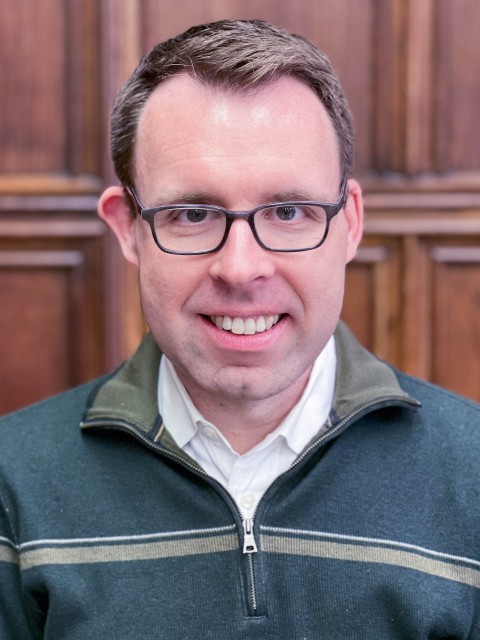
After starting his career as a writing instructor and work across student services, Andrew Karas came to the University of Chicago in 2022. Now the interim director and assistant dean of undergraduate research, he and his team are tasked with connecting College students with institutional, domestic and international research opportunities.
“I really enjoy working with students and helping to facilitate transformative experiences as a part of their undergraduate education,” said Karas. “Experiences—like research—allow students to deepen engagement with issues that they care about and help them clarify what their next steps might be after graduation.”
We sat down with Andrew to learn more about the work of the Office of Undergraduate Research in the College and the upcoming Undergraduate Research Symposium on Friday, April 25.
UChicago is known as a preeminent research university. Why do you think it’s important for College students to experience research as undergraduates?
The University is a place where knowledge is not only transmitted, but also created. Research is where we see the stakes of this intellectual work—we're not just asking questions, we're asking questions that matter.
For students, being connected to research being done on campus offers them the opportunity to not only understand how knowledge is produced, but to also participate in the creation of new knowledge. A lot of the research at UChicago has real consequences, whether it's for public policy, health, the arts, or countless other areas where the University is a leader and striving to make the world a better place through advancing the frontiers of knowledge.
We’re also lucky that Dean Hale is such a champion of undergraduate research and expanding the breadth of opportunities available for College students. It’s a really exciting time for our team, and we're all working really hard to connect even more undergraduates to experiences.
How does your office help connect students to opportunities?
In the Office for Undergraduate Research, we want to support students interested in making scholarly research and creative inquiry a fundamental part of their experience in the College.
We offer workshops and information sessions year-round on everything from getting started in research to very specific research skills, even communicating the results of your research in a clear and understandable way. We offer a zero credit course that we offer during Winter Quarter that's an introduction to undergraduate research, in addition to advising appointments and drop in hours if students want to connect with us one-on-one.
The College supports undergraduate research through grants and structured programs like the College Summer Institute to provide financial and intellectual support for students pursuing these opportunities. Our annual Undergraduate Research Symposium later this month gives us a chance to recognize and celebrate our students’ accomplishments.
We also spend a lot of time collaborating with partners across the university to expand and support and sustain these opportunities for students. I think research is about relationships, which is something that isn't always apparent at first glance, and that's something that we spend a lot of time talking about with students. Making these connections and building these relationships doesn't have to be intimidating: we offer some very practical tips and strategies!
The annual Undergraduate Research Symposium is on April 25—what can attendees expect to see at the event?
The Symposium is one of my favorite days of the year. It's a celebration of the huge array of different projects that students have applied themselves to over the course of the year. It is open for all members of the UChicago community and the public to attend, and I hope you’ll consider doing so! It’s Friday, April 25 from 9:30 a.m. to 2:30 p.m. at the David Rubenstein Forum.
We'll have nearly 300 students presenting. The event will feature more oral presentation sessions than ever before, which is exciting. We’ll also have poster sessions, which are great for walking around and discovering what cool things you never even realized your peers were working on.